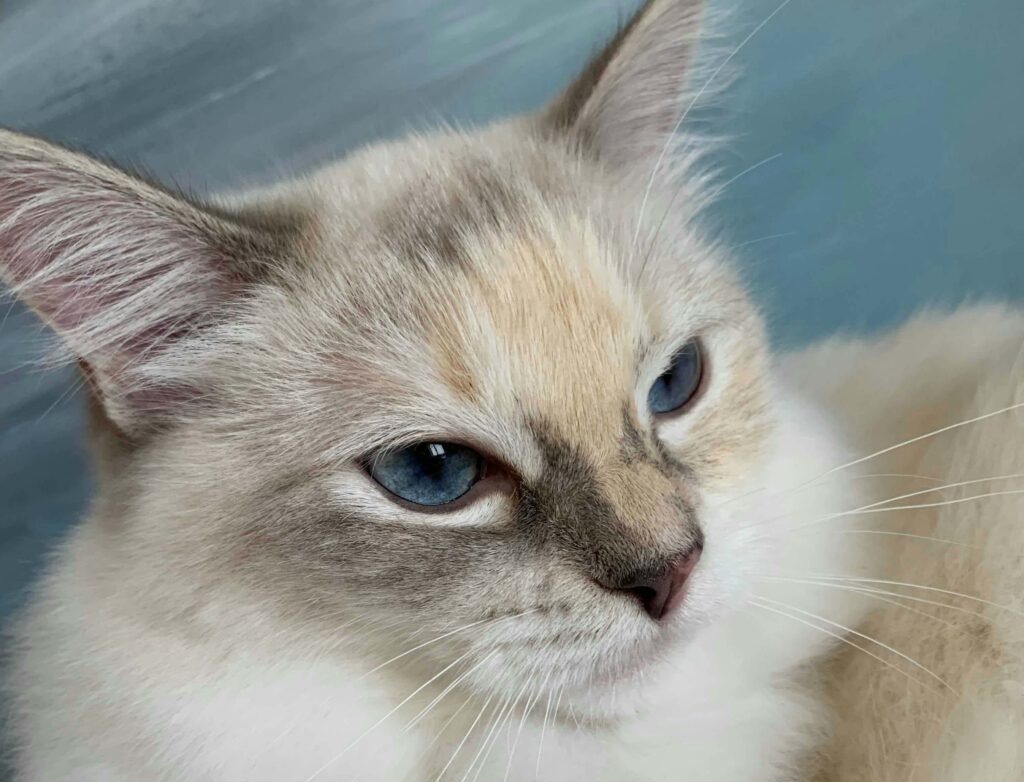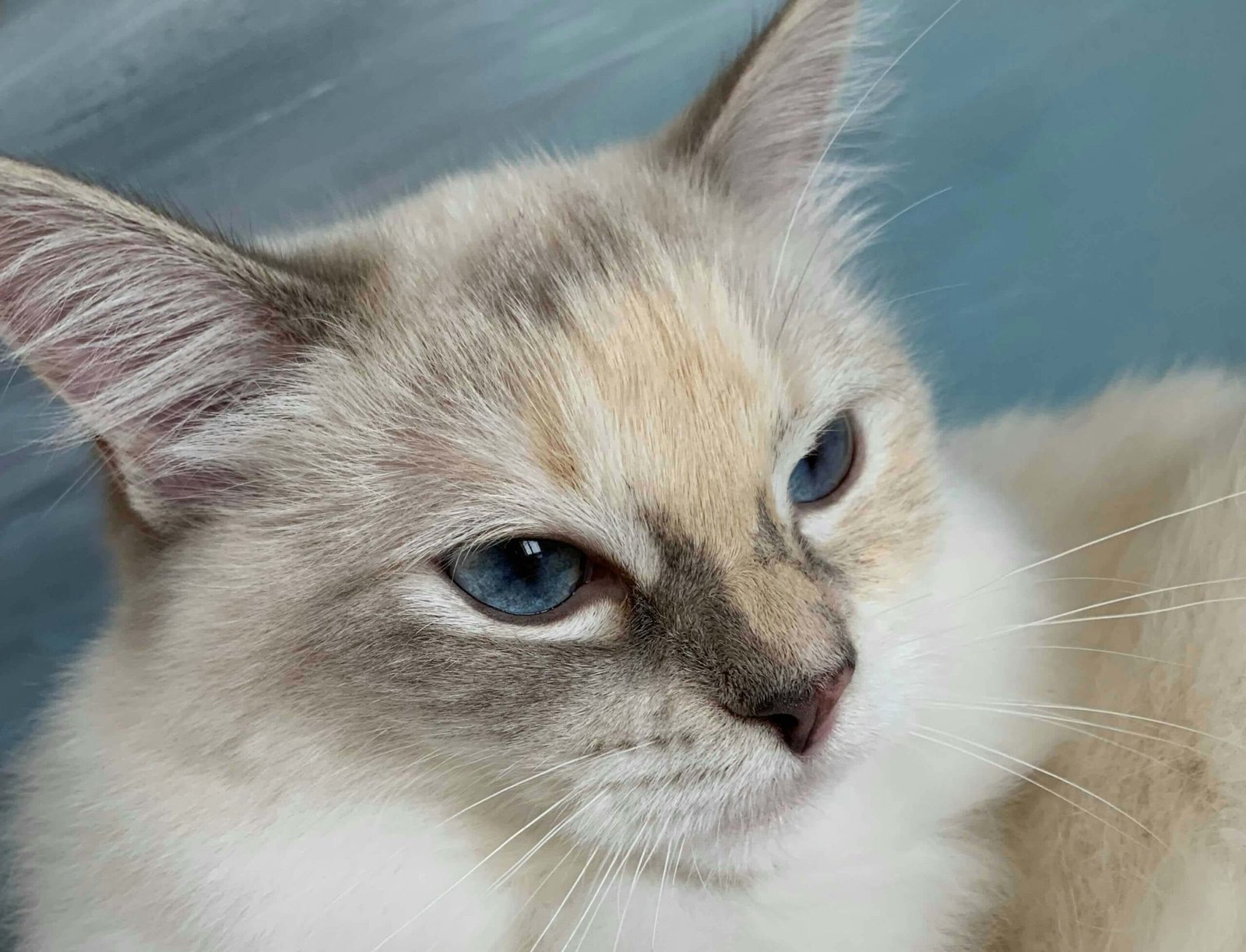Why Is My Cat Hissing at Me? Understanding and Addressing This Behavior
Cats are known for their expressive communication, and hissing is one of the most unmistakable sounds they make. While it might feel alarming or hurtful when your cat hisses at you, it’s important to remember that this behavior is rarely random. Hissing is a natural response rooted in fear, discomfort, or territorial instincts. Whether your cat is new to your home or has suddenly started hissing after years of companionship, understanding the reasons behind this behavior can help you address it effectively.
In this blog post, we’ll explore why cats hiss, how to interpret their signals, and what steps you can take to restore harmony in your relationship. By the end, you’ll feel more confident in navigating this challenging situation and ensuring both you and your feline friend are happy and comfortable.
Common Reasons Why Your Cat May Be Hissing at You
When your cat hisses, it’s often a sign that something is wrong—whether it’s physical, emotional, or environmental. Here are some common triggers for this behavior:
Fear or Anxiety
Cats may hiss when they feel threatened or scared, especially in unfamiliar situations or around strangers.Pain or Discomfort
If your cat is injured, ill, or experiencing pain, they may hiss as a defensive reaction to being touched or approached.Territorial Instincts
Cats are naturally territorial, and they may hiss to assert dominance or protect their space from perceived intruders.Overstimulation
Too much petting, playing, or handling can overwhelm your cat, leading them to hiss as a way to set boundaries.Introduction of New Elements
Changes such as a new pet, baby, or even furniture can trigger stress and cause your cat to hiss defensively.
Understanding these reasons can help you identify the root cause of your cat’s hissing and take appropriate action to address it.
How to Respond When Your Cat Hisses at You
Reacting calmly and appropriately is key when your cat hisses. Your response can either de-escalate the situation or unintentionally worsen it. Here’s how to handle the moment effectively:
Give Them Space
Back away slowly and avoid making sudden movements to show your cat that you’re not a threat.Avoid Punishment
Never scold or punish your cat for hissing, as this can increase their fear and aggression.Stay Calm and Patient
Your demeanor can influence your cat’s mood, so remain composed and speak in a soothing tone.Identify Triggers
Take note of what happened immediately before the hissing to pinpoint potential stressors or threats.Respect Their Boundaries
If your cat seems uncomfortable, give them time to calm down before attempting further interaction.
By responding thoughtfully, you can build trust and prevent future incidents of hissing.
Check this guide 👉Why Your Cat Hisses at Other Cats After a Vet Visit: Best 7 Tips

Behavioral Signs to Watch For | Possible Underlying Causes |
|---|---|
Flattened ears | Fear or defensiveness |
Puffed-up tail | Feeling threatened or aggressive |
Swatting or growling | Overstimulation or irritation |
Hiding or avoiding contact | Stress or anxiety |
Dilated pupils | Pain or heightened alertness |
Tips to Prevent Future Hissing Incidents
Preventing future hissing requires addressing the root causes and creating a supportive environment for your cat. Here are some practical tips to minimize triggers:
Create Safe Spaces
Provide cozy hiding spots where your cat can retreat if they feel overwhelmed or stressed.Introduce Changes Gradually
If introducing new pets, people, or objects, do so slowly to allow your cat time to adjust.Monitor Playtime
Pay attention to signs of overstimulation during play and stop before your cat becomes agitated.Use Positive Reinforcement
Reward calm behavior with treats or praise to encourage positive interactions.Maintain Routine
Cats thrive on consistency, so sticking to a predictable schedule can reduce stress.
These proactive measures can help create a peaceful environment and reduce the likelihood of hissing.
Recognizing When to Seek Professional Help
While occasional hissing is normal, persistent or aggressive hissing could indicate a deeper issue that requires professional intervention. Here are signs that it’s time to consult a vet or animal behaviorist:
Frequent Aggression
If your cat consistently hisses and shows other aggressive behaviors, it may signal an underlying problem.Unexplained Changes in Behavior
Sudden shifts in personality or habits alongside hissing should be investigated.Physical Symptoms
Signs like limping, lethargy, or changes in appetite could point to illness or injury.Difficulty Socializing
If your cat struggles to interact with family members or other pets despite efforts to improve things.No Improvement Over Time
If behavioral modifications don’t yield results after several weeks, expert guidance may be necessary.
Seeking professional help ensures your cat receives the care and support they need to thrive.
Signs Your Cat Feels Threatened
When your cat hisses, it’s often a sign that they feel threatened or unsafe. Recognizing these signs can help you address the root cause of their discomfort. Here are some common indicators:
Body Language
A crouched posture with a puffed-up tail signals fear or defensiveness.Vocal Cues
Growling or yowling alongside hissing suggests heightened agitation.Avoidance Behavior
If your cat retreats to a hiding spot or avoids interaction, they may be trying to escape a perceived threat.Dilated Pupils
Wide eyes with dilated pupils indicate alertness and stress.Hissing in Specific Situations
Noticing patterns, such as hissing during grooming or when approached by certain people, can reveal triggers.
By observing these signs, you can better understand what’s causing your cat’s distress and take steps to alleviate it.
How to Calm an Overstimulated Cat
Cats can become overstimulated during play or petting, leading to hissing as a way to communicate their discomfort. Here are some strategies to help calm your cat in these moments:
Stop Physical Contact
Immediately pause petting or handling to give your cat a chance to relax.Provide Distance
Step back and allow your cat to move away if they choose to.Offer Treats or Toys
Redirect their focus with a favorite toy or a small treat to shift their mood.Create a Quiet Environment
Dim the lights or reduce noise levels to create a calming atmosphere.Use Gentle Reassurance
Speak softly or blink slowly at your cat to convey reassurance without overwhelming them.
These techniques can help de-escalate tension and prevent future incidents of overstimulation.
Building Trust After Hissing Incidents
Rebuilding trust after a hissing incident is essential for maintaining a positive relationship with your cat. Here are some ways to foster trust and improve communication:
Respect Their Boundaries
Avoid forcing interactions and let your cat initiate contact when they’re ready.Engage in Positive Activities
Spend time playing or engaging in activities your cat enjoys to strengthen your bond.Be Consistent
Maintain predictable routines so your cat feels secure and less anxious.Reward Calm Behavior
Use treats, praise, or affection to reinforce moments of calm and relaxation.Monitor Progress
Keep track of improvements in your cat’s behavior to identify what’s working.
By focusing on trust-building, you’ll create a stronger connection with your cat and reduce the likelihood of future hissing incidents.
Frequently Asked Questions About Cat Hissing
Is it normal for cats to hiss occasionally?
Yes, occasional hissing is normal, especially in stressful or threatening situations.
Should I ignore my cat when they hiss?
Ignoring them isn’t recommended; instead, give them space and try to understand the cause.
Can hissing be a sign of illness?
Absolutely. Pain or discomfort can lead to hissing as a defensive mechanism.
How long does it take for a cat to stop hissing at a new person?
It varies by cat, but patience and gradual introductions can speed up the process.
What should I do if my cat hisses at me every day?
Identify patterns or triggers and consult a vet or behaviorist if the behavior persists.
Final Thoughts: Building Trust After Cat Hissing
Hissing is a natural and instinctive behavior for cats, but it doesn’t have to define your relationship with your feline companion. By understanding the reasons behind your cat’s hissing and responding with empathy and patience, you can work toward resolving the issue and strengthening your bond. Remember, every cat is unique, and addressing their needs requires time, observation, and care. With the right approach, you can transform moments of tension into opportunities for connection, ensuring a harmonious and loving home for both you and your furry friend.
Canned Pumpkin for Cat Diarrhea: Best 7 Expert Tips! Natural remedy to firm stools, soothe upset bellies, and support gut health safely.
Can a Cat Give You Scabies? Best 7 Expert Tips! Discover the truth about feline mites, human skin risks, and how to protect yourself—without panic.
Cat Flea vs Human Flea: Best 7 Expert Tips! Discover the truth about bites, species, and how to eliminate infestations for good.
Weird Cat Behaviors: Best 7 Expert Tips! Discover why cats do strange things—and how to understand, not punish, their instincts for a happier home.





